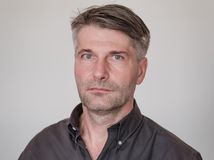Gather ‘round, children of the Last Men. I teach you the Übermensch, and the philosophy of his herald, Herr Friedrich Wilhelm Nietzsche.

There are these things, called values. Values dictate to humans what we think is important. We, the current crop of humanity, didn’t choose our values. They were formed over thousands of years of human culture, and they evolved and changed like organisms.
This is a critical point in understanding Nietzsche’s philosophy. It’s not so much an individual philosophy of human life, although he touches on that. It’s not a metaphysical system either, although he gestures toward a certain metaphysics. Instead, Nietzsche’s philosophy is an assessment of the present situation of humanity as it stands, and a prediction of where he thinks it’s going. Nietzsche’s primary motivation is a diagnosis of the current problems of mankind and a prognosis of where it will go, as well as a recommended “treatment.” Nietzsche thinks of himself as a social soul-physician, as it were.
The diagnosis is as follows: humans have a bunch of values that will not be able to stand up to the new kinds of knowledge and social change wrought by science and technology. As a result, our values will crumble. Our assumption, for example, that altruism and equality are good, may not be able to keep up with technology, so we may end up hierarchical and/or competitive. This holds for all of our values. Religion, in particular, thought Nietzsche, would die as science and technology moved forward. Whether or not you agree with him about the future of any given value, Nietzsche’s basic postulation is at least worth consideration. For the past 400 years, at least (300 years from Nietzsche’s time) we have been pursuing modernity, a program of egalitarianism, a particular kind of rationality, and a particular worldview. Nietzsche’s assertion that this worldview would die could, under a broad definition of the word, mark him out as the very first of the postmodern philosophers, or a proto-postmodern, if you like. Nietzsche, however, was not only critiquing modernity, but the whole system of values that have dominated European philosophy (and, to a large extent, European culture) since Plato.
One particularly poignant passage outlines it thus:
„Knowledge for its own sake“ — that’s the last snare of morality; with that one becomes completely entangled in it once more
Nietzsche’s claim is that our huge recent increase in knowledge destabilizes our former values. The only argument against it is an instrumental argument made in service of present values, that runs thus: “We should only scientifically investigate things when they are useful.” The hidden premise here, as Nietzsche would gleefully point out, is that we have a clearly-defined goal. Nietzsche would smirk beneath that magnificent mustach and say, “Useful, you say? Useful to whom, and for what?” The problem is that, as soon as you appeal to utility, as soon as you appeal to “usefulness,” you implicitly assume that your opponent shares the same goals that you do, the same values. Thus, if you try to avoid acquiring knowledge that would upset your worldview, and try to argue against it by saying that it’s just “knowledge for the sake of knowledge,” you are laying out the last snare of “morality,” of the old values, to keep everyone trapped in the old decaying system of values. But that system will not, cannot continue.

Heraclitus, one of Nietzsche’s favorites, weeps for the transience of all things.
The prognosis is as follows: humanity, beginning with Western culture and then spreading elsewhere, will fall victim to nihilism. Nihilism is a condition where an individual has no significant values, beyond perhaps his or her immediate comfort. Note that Nietzsche does not believe in “objective” values, or values that are true independently of human beings. As the “last snare of morality” fails, we will find that people simply give up all values, and think only of their immediate comfort. The people who do so are the Last Men. The Last Man is the one who has given up all meaning and makes arguments in favor of mere existence. The problem is that this cannot last. Eventually, over several generations, the nihilism and pleasant distraction, the Huxleyan satiation of nihilistic humans-become-swine, will wear thin, and the hollowness and despair overtakes us all. The Last Men will do their best to get around this and create a pleasant world that can last forever, but to no avail.
„What is love? What is creation? What is longing? What is a star?“—so asketh the last man and blinketh.
The earth hath then become small, and on it there hoppeth the last man who maketh everything small. His species is ineradicable like that of the ground-flea; the last man liveth longest.
„We have discovered happiness“—say the last men, and blink thereby.
They have left the regions where it is hard to live; for they need warmth. One still loveth one’s neighbour and rubbeth against him; for one needeth warmth.
Turning ill and being distrustful, they consider sinful: they walk warily. He is a fool who still stumbleth over stones or men!
A little poison now and then: that maketh pleasant dreams. And much poison at last for a pleasant death.
One still worketh, for work is a pastime. But one is careful lest the pastime should hurt one.
One no longer becometh poor or rich; both are too burdensome. Who still wanteth to rule? Who still wanteth to obey? Both are too burdensome.
No shepherd, and one herd! Every one wanteth the same; every one is equal: he who hath other sentiments goeth voluntarily into the madhouse.
„Formerly all the world was insane,“—say the subtlest of them, and blink thereby.
They are clever and know all that hath happened: so there is no end to their raillery. People still fall out, but are soon reconciled—otherwise it spoileth their stomachs.
They have their little pleasures for the day, and their little pleasures for the night, but they have a regard for health.
„We have discovered happiness,“—say the last men, and blink thereby.—
And here ended the first discourse of Zarathustra, which is also called „The Prologue“: for at this point the shouting and mirth of the multitude interrupted him. „Give us this last man, O Zarathustra,“—they called out- -„make us into these last men! Then will we make thee a present of the Superman!“ And all the people exulted and smacked their lips. Zarathustra, however, turned sad, and said to his heart:
„They understand me not: I am not the mouth for these ears.
Notice that the Last Men are historically conscious. They know how we got here, and they want to stay here, so they make arguments that the present state of humanity is the best state – but that, of course, requires certain values, which the Last Men lack.
Just so you know, Nietzsche was right about this. The Last Man is who we see walking about today. I have noticed, over the years, that whenever I speak with another person about philosophy, and whenever we go deep enough, the person with whom I am speaking eventually throws up their hands and says, “It doesn’t matter, because it’s all meaningless anyway.” Try it sometime. You will find that you are surrounded by the Last Man, the small man who makes everything small.
Notice that the subtlest of the Last Men say, “Formerly, all the world was insane.” The very smartest of the nihilistic people around you will claim that people before the present time were crazy somehow. Maybe they were crazy because they were religious, or because they went to war, or because they did other things that make us moderns recoil. But if you go deep enough, you will find that the Last Men you meet always eventually say that people before modernity were crazy because they had values, because they thought some things were important. The thing is, without values, without a measuring stick against which to test things, you have no standpoint from which you can judge someone else sane or insane, except in the bare clinical sense of psychosis. This is why the Last Men say that all the world was insane, “and blink thereby.” This is a bit of a translation issue; it would be better to translate it, “with a wink.” The Last Men lie to you and are dishonest with themselves, and they wink at you as they lay out their reasons for having no reasons at all.

The Last Men amuse themselves at the skat table.
So, what’s the solution?
The solution is the Übermensch.
The Übermensch is no longer a man, but the superman, he who comes after the Last Men. The Übermensch no longer needs the old values, because his intellect is so powerful and penetrating, his will is so strong, his self-awareness so profound, that he can simply generate new values with the power of his will. This is no easy task. This is not the existentialist claim to finding your own meaning in life. This is a matter of generating values. Remember that the old values of mankind were created over thousands of years of culture and struggle. Nietzsche is postulating a new kind of human so advanced that they can will new values into existence in a single generation through the simple exertion of their will. This is an inhuman task, or perhaps a super-human task, which requires the presence of the Übermensch in order to happen.
Where does that leave us, the present humans? It leaves us in the position of being pre-Übermenschen, of being those who will create the Übermensch. The meaning of our lives is not to create new values, because that is a task we cannot rise to. The meaning of our lives is to create the Übermensch, the one who can create new values. Man is a rope, stretched over an abyss. Man is also the tightrope walker going over that abyss. Man surpasses himself, moving from one side of the abyss, the brute and the ape, to the other side – the Übermensch.
Note: out of summaries of Nietzsche’s philosophy found on the internet, this one I just wrote is one of the better ones for popular consumption. No, I’m not being arrogant; there are deeper works on Nietzsche, but they’re academic, because people who understand Nietzsche very well are typically academics, thus not terribly concerned with making Nietzsche intelligible to those outside of the academy, or are very bad at doing so from being immersed in academic writing so long. Succinct, accessible writing on Nietzsche is hard to find, and I just gave you some for free. So, if you want to show your appreciation, do so in any way you see fit. My preferred way for you to do it is with a donation. A single dollar a month means a lot to me, if only because it shows that my writing has created a real response in someone. Also, I really like money.




















Celá debata | RSS tejto debaty